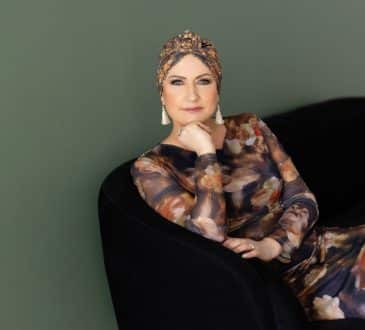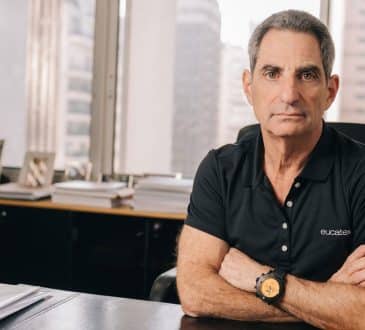The War on Brands, the Russia-Ukraine Conflict.

World peace is now under siege by what some call an invasion of a sovereign country. Global citizens feel powerless under the inability to give a hand to Ukrainians, whose lives have forever changed. Global consumers see this as an opportunity to express their sentiment by avoiding the consumption of Russian brands, whatever they may be.
Some TV networks worldwide showed people from different countries emptying bottles of Russian vodka to show disgust at Putin’s plans to invade other countries. More than 100 bottles of Russian vodka were taken off the shelves in the United States by the Jacob Liquor Exchange in Wichita. According to Fox News, the store’s acts signify solidarity for Ukraine. According to the New York Times, the Liquor Control Board of Ontario, Canada’s most populous province, will remove “all products made in Russia” from its more than 600 liquor stores.
But boycotts of Russian brands during times of crisis are nothing new. In 2014 from around the world spoke out against Russia’s invasion of Crimea, protested at Capital Region Lukoil stations, and encouraged residents to boycott the Russian brand. Lukoil North America is an indirect wholly-owned subsidiary of OAO Lukoil, a major global energy company. The Company manages a distribution network in 11 states on the country’s east coast and Washington, District of Columbia.
Another Russian brand, Baltika Brewery, was also boycotted during the conflict with Crimea. Baltika is the second-largest brewing company in Europe and the leader of the Russian beer market with over 38% market share. Founded in St. Petersburg in 1990, they are the leading exporter of Russian beer. The Company’s products, offered in more than 79 countries, include North America and Asian Pacific region. Global consumers will most likely shift their buying habits again to avoid consuming these products to signal their displeasure with the current Russia-Ukraine conflict.
From the optic of global destination brand perspective, a different economic consumer consumption reveals itself. For instance, in 2020, Costa Rica eliminated the visa requirement for citizens of the Russian Federation to increase tourism from that country. According to a Costa Rica Tourism Board study, the Russian tourist looking for Costa Rica vacations is a young, highly educated traveler between 25 and 35 years old. Should Costa Rica boycott Russian citizens under the current world economic conditions and the much more Russian invasion of Ukraine? Likewise, should other country brands worldwide encourage their citizens to boycott Russian tourist destinations?
Just as European borders reopened and eased Coronavirus restrictions, international tourists faced the decision to travel to nearby Russian countries because of the Russia-Ukraine conflict. The Federal Aviation Administration (FAA) recently expanded the no-fly zone in eastern Europe for U.S. airlines. In addition to collateral damage, the no-fly area now includes Ukraine, Belarus, and western Russia. Likewise, the U.K. banned Russia’s national airline Aeroflot from landing in Britain. It appears that Europe may have to endure a slow travelers demand for their country brands.
This reality may not be welcomed news for countries worldwide with fragile economies that depend on Russia-branded products and their tourists. However, with global inflation at its highest and the present situation in Ukraine, it will most likely limit what brands consumers can choose and what places to visit in Europe. For example, Turkey’s central bank reports that in 2021, a tourist from Ukraine accounted for 9% of their visitors and 17% for Russia. Even if consumers in Turkey want to boycott Russian products, the country imports around 34% of the country’s natural gas from Russia.
The truth is that the Russia-Ukraine conflict can affect consumers’ consumption and reexamine the relationship with Russian brands. A recent paper by social scientists Vasiliki Fouka and Hans-Joachim Voth tracked the relationship between resentment among Greek consumers toward German carmakers during the Greek sovereign debt crisis of 2009-2014 and the actions of the German military during its World War II occupation of Greece. They concluded that, as political tensions between Greece and Germany rose, Greeks, in general, were less likely to buy German cars. Another study conducted by Inger Roos and Margareta Friman found that stress, anxiety, depression, tension, and rage directly influence consumer behavior changes.
Boycotts continue to be a purely symbolic expression to convey negative feelings like rage and disappointment. As a result of Covid-19 and the crisis between Russia and Ukraine, global inflation and weak economies will ultimately limit consumers’ brand choices. In the future, when ready and able to express their ideas and dissatisfaction with current conflict, global consumers will most likely choose a product that reflect their beliefs.
Written by Dr. Rudy Cardona.
Have you read?
# Best CEOs In the World Of 2022.
# TOP Citizenship by Investment Programs, 2022.
# Top Residence by Investment Programs, 2022.
# Global Passport Ranking, 2022.
# The World’s Richest People (Top 100 Billionaires, 2022).
# Jamie Dimon: The World’s Most Powerful Banker.
Bring the best of the CEOWORLD magazine's global journalism to audiences in the United States and around the world. - Add CEOWORLD magazine to your Google News feed.
Follow CEOWORLD magazine headlines on: Google News, LinkedIn, Twitter, and Facebook.
Copyright 2025 The CEOWORLD magazine. All rights reserved. This material (and any extract from it) must not be copied, redistributed or placed on any website, without CEOWORLD magazine' prior written consent. For media queries, please contact: info@ceoworld.biz











